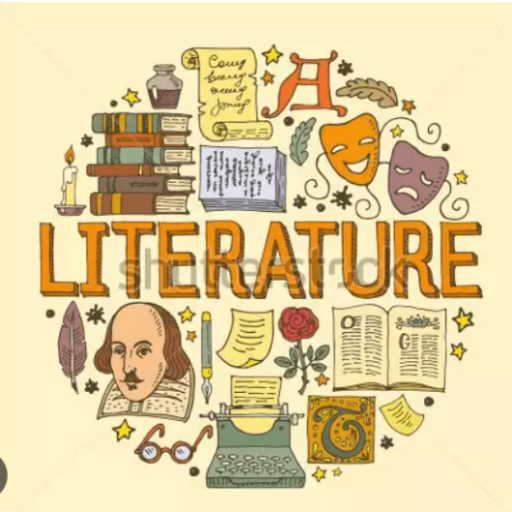In this article, we delve into the fascinating question: How many languages are Shakespeare’s plays translated into? Prepare to embark on a journey through the linguistic tapestry of Shakespeare’s global influence.
Shakespeare, the world-renowned playwright, and poet, is celebrated for his literary genius and profound impact on English literature. However, his influence extends far beyond the English-speaking world. Shakespeare’s plays are ranked and widely performed.
Advertisement
Shakespeare’s works have been translated into numerous languages, making them accessible to a diverse range of cultures and audiences.
Advertisement
How Many Languages Are Shakespeare’s Plays Translated Into?
The plays of William Shakespeare have been translated into an astonishing number of languages, allowing people from diverse backgrounds to experience the beauty and depth of his work.
Advertisement
While it is difficult to provide an exact count, Shakespeare’s plays have been translated into over 100 languages worldwide. This remarkable feat highlights the universality and timeless appeal of his plays.
Advertisement
The Linguistic Diversity of Shakespeare’s Works
Shakespeare’s plays have been embraced by cultures around the world, and translators have labored to capture the essence of his words in their respective languages.
From the romance languages of Europe to the intricate tonal languages of Asia, Shakespeare’s works have been adapted to resonate with diverse linguistic nuances.
Let’s take a closer look at some of the most notable translations of Shakespeare’s plays in different regions:
European Languages
The influence of Shakespeare in Europe is undeniable. Many of his plays have been translated into various European languages, allowing audiences across the continent to appreciate his timeless stories. Some of the prominent translations include:
French:
Renowned French poet and playwright Victor Hugo once described Shakespeare as “an immense continent of the human spirit.” French translations of Shakespeare’s works, such as those by François-Victor Hugo and André Gide, have brought Bard’s masterpieces to French-speaking audiences with great success.
German: How Many Languages Are Shakespeare’s Plays Translated Into?
German translations, notably those by August Wilhelm Schlegel and Friedrich Gundolf, have played a crucial role in popularizing Shakespeare in Germany. These translations have captured the essence of Shakespearean drama while maintaining the linguistic integrity of the original texts.
Italian:
The beauty and passion of Shakespeare’s works have been masterfully rendered in Italian translations by esteemed translators such as Carlo Rusconi and Giulio Carlo Argan. These translations have contributed to the enduring popularity of Shakespearean plays in Italy.
Asian Languages
Shakespeare’s plays have transcended cultural boundaries and found resonance even in Asian languages. The adaptations of his works in Asian languages demonstrate the universality of his themes and characters. Here are a few examples:
Japanese:
Japanese translations of Shakespeare, influenced by the Noh and Kabuki theatrical traditions, have reimagined his plays for Japanese audiences. The translator and scholar, Yushi Odashima, has made significant contributions to Shakespearean translations in Japan.
Chinese:
Shakespeare’s plays have been translated into Mandarin Chinese, allowing Chinese audiences to experience his works. Notable Chinese translators, such as Lin Shu and Xu Yuanchong, have skillfully captured the essence of Shakespeare’s poetic language in their translations.
Hindi: How Many Languages Are Shakespeare’s Plays Translated Into?
Translations of Shakespeare into Hindi have brought Bard’s works to a vast Hindi-speaking audience. Hindi translators, including Ramanand Sagar and Harivansh Rai Bachchan, have adapted the plays while preserving their essence.
Other Languages
Shakespeare’s global reach extends beyond Europe and Asia, with translations of his plays in numerous other languages. Here are a few notable examples:
Russian:
Russian translations of Shakespeare’s plays, including those by Boris Pasternak and Samuil Marshak, have introduced the beauty of his works to Russian-speaking audiences.
These translations have helped shape the appreciation of Shakespearean drama in Russia.
Arabic: How Many Languages Are Shakespeare’s Plays Translated Into?
The enchanting words of Shakespeare have been translated into Arabic, making his plays accessible to Arab-speaking audiences. Renowned translator Saad El-Din Wahba has made significant contributions to the Arabic translations of Shakespeare’s works.
Portuguese:
In Portugal and Brazil, Shakespeare’s plays have been translated into Portuguese, allowing Portuguese-speaking audiences to experience the power of his words. Translators such as Ferreira de Castro and Carlos Alberto Nunes have made notable contributions to these translations.
Conclusion: How Many Languages Are Shakespeare’s Plays Translated Into?
William Shakespeare’s plays have transcended time, language, and cultural boundaries, captivating audiences across the globe. The fact that his works have been translated into over 100 languages is a testament to their enduring appeal and universal themes.
Translators have played a vital role in bringing Shakespeare’s genius to a vast and diverse audience, allowing people of all backgrounds to experience the magic of his words. The linguistic tapestry of Shakespeare’s translations reflects the richness of human creativity and the universality of the human experience.
Frequently Asked Questions
Shakespeare’s plays have been translated into over 100 languages worldwide, showcasing the immense global influence of his work.
“Romeo and Juliet” is one of the most widely translated Shakespeare plays due to its universal themes of love and tragedy.
Translating Shakespeare poses several challenges, such as capturing the nuances of Elizabethan English and maintaining the rhythm and poetic qualities of the original text.
Translations have played a significant role in expanding the popularity of Shakespeare’s plays, allowing audiences worldwide to connect with his universal themes and timeless characters.
Translators face the delicate task of balancing fidelity to the original text while adapting the language and cultural references to resonate with the target audience. This requires a deep understanding of both the source and target languages and cultures.
While translations may not capture the full brilliance of Shakespeare’s language, skilled translators strive to convey the essence and spirit of his works, allowing audiences to appreciate his genius in their own languages.

